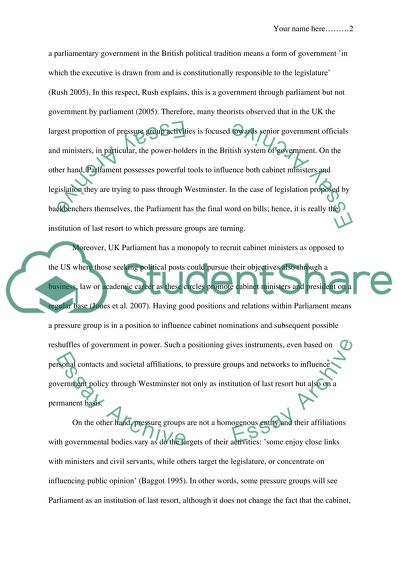Cite this document
(“Parliament and policy making Essay Example | Topics and Well Written Essays - 2250 words”, n.d.)
Retrieved de https://studentshare.org/miscellaneous/1565709-parliament-and-policy-making
Retrieved de https://studentshare.org/miscellaneous/1565709-parliament-and-policy-making
(Parliament and Policy Making Essay Example | Topics and Well Written Essays - 2250 Words)
https://studentshare.org/miscellaneous/1565709-parliament-and-policy-making.
https://studentshare.org/miscellaneous/1565709-parliament-and-policy-making.
“Parliament and Policy Making Essay Example | Topics and Well Written Essays - 2250 Words”, n.d. https://studentshare.org/miscellaneous/1565709-parliament-and-policy-making.


